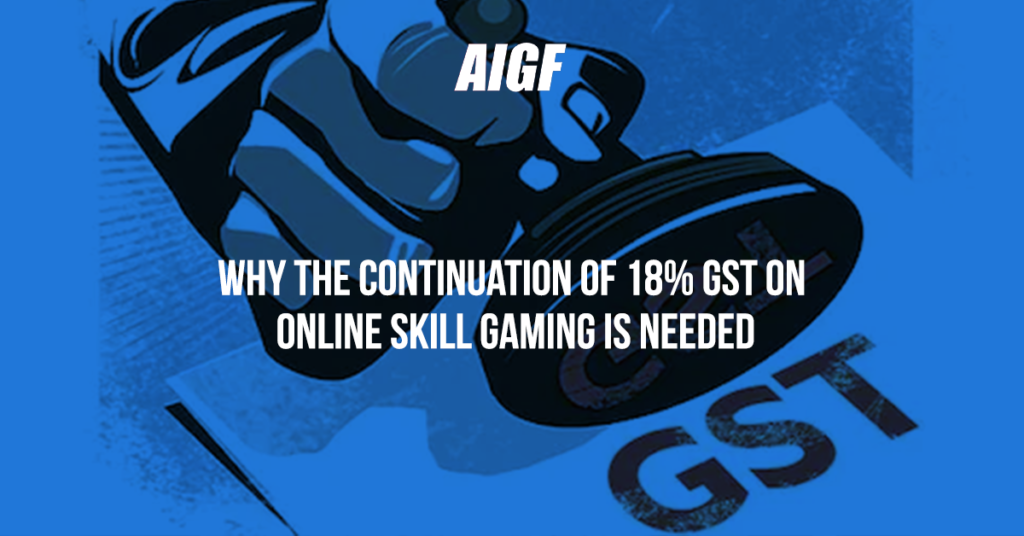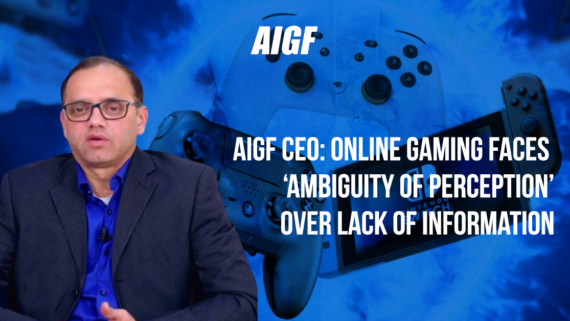The online gaming industry is directly connected to the development of a few different sectors like banking, payment gateway, telecom, fintech, sports, and entertainment. The online gaming industry has almost 400 organizations employing around 45,000 individuals.
Why The Continuation Of 18% GST On Online Skill Gaming Is Needed?
Notably, the Group of Ministers (GoM) assigned by the GST board to online gaming, casinos, and race courses is probably going to meet in mid-May to conclude their view, which is probably going to hike the GST rate from the current 18% to 28%.
The online gaming industry has moved toward the GoM to rethink the decision on a hike in GST for the following reasons:
- A high GST system will ruin the budding industry and the Prime Minister’s vision of making India a gaming superpower: The Prime Minister’s perspectives on the gaming industry are notable. He said the financial plan’s spotlight this year was on AVGC (Animation, Visual Effects, Gaming, and Comics) because “the gaming market is huge and the number of youth-related products in this market overall is growing.” The high tax assessment, specialists emphatically accept, would adversely influence the budding industry. The transactions on online gaming platforms are 100% digital and make a critical commitment to “Digital India”. To a great extent driven by the entrepreneurial community, India’s online gaming industry assumes a pivotal part in taking the startup spirit in the country to a higher level and giving further lift to India’s AVGC sector.
- Monetary development is being driven by the online gaming sector. In FY21, the sector contributed Rs 1,450 crore. The industry has drawn in Rs 10,000 crore of FDI, with a potential of Rs 15,000 crore more in the next three years. By 2025, India’s online gaming industry would be worth USD 5 billion. The online gaming industry is directly connected to the development of a few different sectors like banking, payment gateway, telecom, fintech, sports, and entertainment. The online gaming industry has almost 400 organizations employing around 45,000 individuals.
- A pragmatic tax regime on skill-gaming platforms will prompt user development and the tech and startup spaces will develop: For quite a while, gaming in India was viewed as a fun activity for kids. The nation likewise missed the PC and console gaming buzz because of expensive hardware and restricted digital penetration. Yet, India has built areas of strength in mobile gaming, inferable from fast expansion in cell phone penetration, changing consumer behavior, cheap and high-velocity internet access, and easy digital payments. This has helped tech and startups to fundamentally prosper. A higher tax rate will make the industry unviable, and online gaming platforms have engaged the public authorities in various events to not treat skill-based online games the same as betting.
- Understanding games of skill, particularly games of chance, and their appearance as such in tax rates and tax collection techniques are critical: In a remarkable judgment, the Punjab and Haryana High Court, in an order dated April 18, 2017, has decided that playing Online Fantasy Sports Gaming (OFSG) includes a significant level of skill, consequently classifying it as a “game of skill”. It doesn’t go under the ambit of the Indian Public Gambling Act 1867 and is announced as a legitimate business in India. It explicitly managed the cost of the protection of the right to free trade and commerce ensured under Article 19 (1) (g) of the Constitution of India. Similar positive decisions have been made in the online rummy industry by a few high courts and, surprisingly, the Supreme Court of India. Online games of skill are fundamentally distinct from games of chance, and the skill-based gaming industry excludes betting and lottery. Consolidating online skill gaming into a sin tax will unfavorably affect the industry.
- Lessons from worldwide tax practices on the online gaming industry: Drawing equal to the global online gaming industry tax structures, industry specialists have pointed towards a few driving worldwide markets like the USA, UK, Australia, and Germany, and how they levy tax on GGR at a rate of between 15-20%. It has been seen and laid out globally that markets that began taxing the prize pool rather than the GGR needed to return to taxing only the GGR as it came about in resistance, income leakage, and gray markets.
Credit: Techno Sports











Comments
Comments are closed.